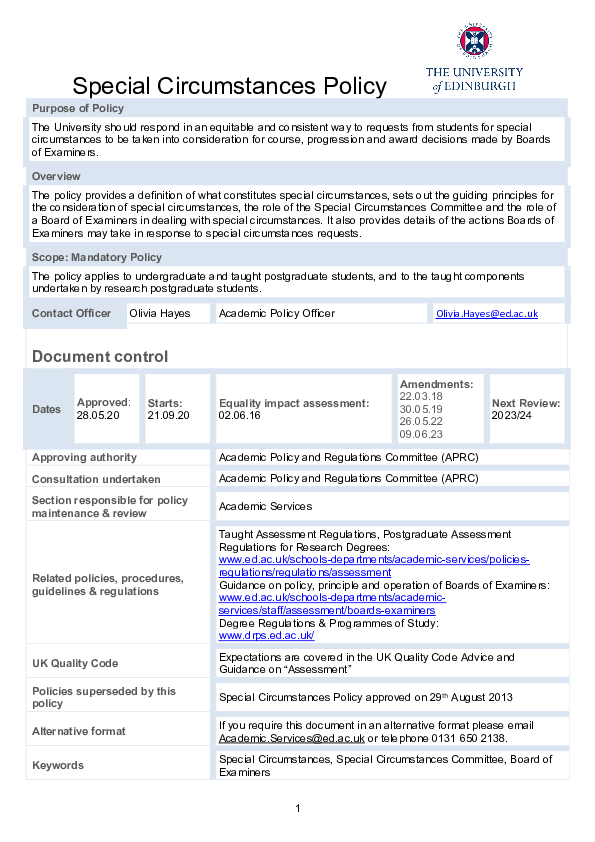Adverse circumstances affecting studies and assessment
Support mechanisms for postgraduate research students experiencing circumstances that affect their ability to engage with their studies.
Sometimes students will experience exceptional circumstances beyond their control that significantly impact on their research performance, attendance or assessment submissions. The University has a Special Circumstances Policy which applies to taught components of a programme. However, for most postgraduate research students, the University offers other support mechanisms if they are experiencing circumstances that affect their ability to engage with their studies.
Students should discuss any circumstances affecting their ability to engage with their studies with their Principal Supervisor first.
Support for students with adverse circumstances that are disrupting their studies can be offered through authorised interruption or extension of study. However, there may be times when personal circumstances affect a student’s ability to participate in an assessment, for example annual progression review or viva. If these are affected, it may be possible to reschedule or change the format of the meeting or exam.
The College Committee may also take into account any exceptional circumstances when considering recommendations from an annual progression review or oral exam. Therefore, it is important that students notify their Principal Supervisor, Postgraduate Director or Postgraduate Adviser in writing of any exceptional circumstance before the relevant assessment (for example annual progression review or viva) or the College Committee meeting.
Examples of circumstances that might have a significant impact include:
- Significant short-term physical illness or injury.
- Significant short-term mental ill-health.
- A long-term or chronic physical health condition, which has recently worsened temporarily or permanently.
- A long-term or chronic mental health condition, which has recently worsened temporarily or permanently.
- Death or serious illness of a person with whom the student has a close relationship.
- A long-term relationship breakdown, such as a marriage.
- Exceptional (non-routine) caring responsibilities.
- Experience of sexual harassment or assault.
- Experience of other types of harassment.
- Victim of a crime which is likely to have significant emotional impact.
- Military conflict, natural disaster, or extreme weather conditions.
- Severe financial difficulties.
- Exposure to a difficult/challenging home environment.
- Exceptional and significant change in employment commitments, where this is beyond the student’s control.
- Significant problems with access to teaching and learning materials, for example due to connectivity, power, or equipment issues.
- Catastrophic technical failure preventing submission of an online assessment by the relevant deadline.
- Lack of access to library resources where there are no viable alternatives.
Examples of circumstances that are unlikely to be accepted include:
- A long-term or chronic health condition (including mental ill-health) which has not worsened recently, or for which the University has already made a reasonable adjustment.
- A minor short-term illness or injury (for example, a common cold), which would not reasonably have had a significant adverse impact on assessment.
- Occasional low mood, stress or anxiety.
- Circumstances which were foreseeable or preventable.
- Holidays.
- Financial issues.
- Pressure of academic work (unless this contributes to ill-health).
- Poor time-management.
- Lack of awareness of dates or times of assessment submission or examination.
- Commitments to paid or voluntary employment.
For taught courses taken by postgraduate research students, the University’s Special Circumstances Policy applies.


